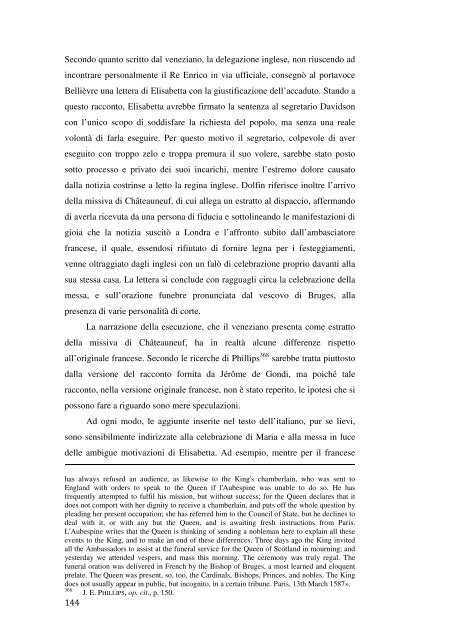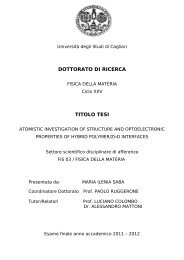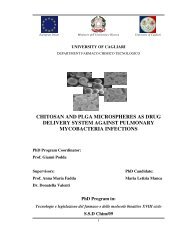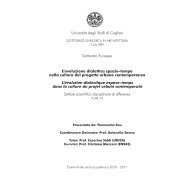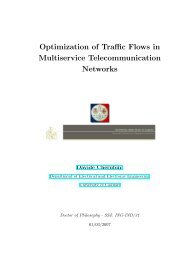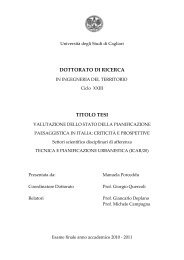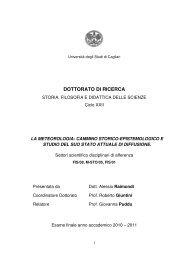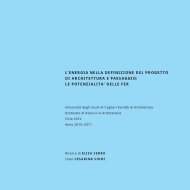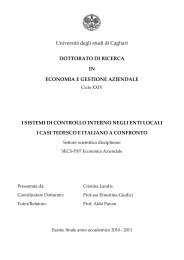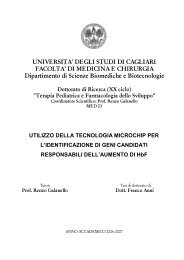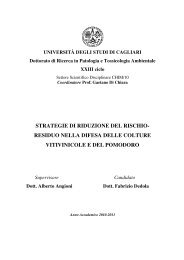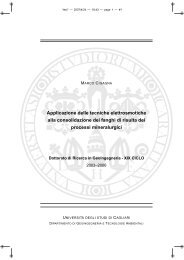Alle origini del mito letterario di Maria Stuarda in Italia
Alle origini del mito letterario di Maria Stuarda in Italia
Alle origini del mito letterario di Maria Stuarda in Italia
You also want an ePaper? Increase the reach of your titles
YUMPU automatically turns print PDFs into web optimized ePapers that Google loves.
Secondo quanto scritto dal veneziano, la <strong>del</strong>egazione <strong>in</strong>glese, non riuscendo ad<br />
<strong>in</strong>contrare personalmente il Re Enrico <strong>in</strong> via ufficiale, consegnò al portavoce<br />
Bellièvre una lettera <strong>di</strong> Elisabetta con la giustificazione <strong>del</strong>l’accaduto. Stando a<br />
questo racconto, Elisabetta avrebbe firmato la sentenza al segretario Davidson<br />
con l’unico scopo <strong>di</strong> sod<strong>di</strong>sfare la richiesta <strong>del</strong> popolo, ma senza una reale<br />
volontà <strong>di</strong> farla eseguire. Per questo motivo il segretario, colpevole <strong>di</strong> aver<br />
eseguito con troppo zelo e troppa premura il suo volere, sarebbe stato posto<br />
sotto processo e privato dei suoi <strong>in</strong>carichi, mentre l’estremo dolore causato<br />
dalla notizia costr<strong>in</strong>se a letto la reg<strong>in</strong>a <strong>in</strong>glese. Dolf<strong>in</strong> riferisce <strong>in</strong>oltre l’arrivo<br />
<strong>del</strong>la missiva <strong>di</strong> Châteauneuf, <strong>di</strong> cui allega un estratto al <strong>di</strong>spaccio, affermando<br />
<strong>di</strong> averla ricevuta da una persona <strong>di</strong> fiducia e sottol<strong>in</strong>eando le manifestazioni <strong>di</strong><br />
gioia che la notizia suscitò a Londra e l’affronto subito dall’ambasciatore<br />
francese, il quale, essendosi rifiutato <strong>di</strong> fornire legna per i festeggiamenti,<br />
venne oltraggiato dagli <strong>in</strong>glesi con un falò <strong>di</strong> celebrazione proprio davanti alla<br />
sua stessa casa. La lettera si conclude con ragguagli circa la celebrazione <strong>del</strong>la<br />
messa, e sull’orazione funebre pronunciata dal vescovo <strong>di</strong> Bruges, alla<br />
presenza <strong>di</strong> varie personalità <strong>di</strong> corte.<br />
144<br />
La narrazione <strong>del</strong>la esecuzione, che il veneziano presenta come estratto<br />
<strong>del</strong>la missiva <strong>di</strong> Châteauneuf, ha <strong>in</strong> realtà alcune <strong>di</strong>fferenze rispetto<br />
all’orig<strong>in</strong>ale francese. Secondo le ricerche <strong>di</strong> Phillips 368 sarebbe tratta piuttosto<br />
dalla versione <strong>del</strong> racconto fornita da Jérôme de Gon<strong>di</strong>, ma poiché tale<br />
racconto, nella versione orig<strong>in</strong>ale francese, non è stato reperito, le ipotesi che si<br />
possono fare a riguardo sono mere speculazioni.<br />
Ad ogni modo, le aggiunte <strong>in</strong>serite nel testo <strong>del</strong>l’italiano, pur se lievi,<br />
sono sensibilmente <strong>in</strong><strong>di</strong>rizzate alla celebrazione <strong>di</strong> <strong>Maria</strong> e alla messa <strong>in</strong> luce<br />
<strong>del</strong>le ambigue motivazioni <strong>di</strong> Elisabetta. Ad esempio, mentre per il francese<br />
has always refused an au<strong>di</strong>ence, as likewise to the K<strong>in</strong>g's chamberla<strong>in</strong>, who was sent to<br />
England with orders to speak to the Queen if l'Aubesp<strong>in</strong>e was unable to do so. He has<br />
frequently attempted to fulfil his mission, but without success; for the Queen declares that it<br />
does not comport with her <strong>di</strong>gnity to receive a chamberla<strong>in</strong>, and puts off the whole question by<br />
plea<strong>di</strong>ng her present occupation; she has referred him to the Council of State, but he decl<strong>in</strong>es to<br />
deal with it, or with any but the Queen, and is await<strong>in</strong>g fresh <strong>in</strong>structions from Paris.<br />
L'Aubesp<strong>in</strong>e writes that the Queen is th<strong>in</strong>k<strong>in</strong>g of sen<strong>di</strong>ng a nobleman here to expla<strong>in</strong> all these<br />
events to the K<strong>in</strong>g, and to make an end of these <strong>di</strong>fferences. Three days ago the K<strong>in</strong>g <strong>in</strong>vited<br />
all the Ambassadors to assist at the funeral service for the Queen of Scotland <strong>in</strong> mourn<strong>in</strong>g; and<br />
yesterday we attended vespers, and mass this morn<strong>in</strong>g. The ceremony was truly regal. The<br />
funeral oration was <strong>del</strong>ivered <strong>in</strong> French by the Bishop of Bruges, a most learned and eloquent<br />
prelate. The Queen was present, so, too, the Car<strong>di</strong>nals, Bishops, Pr<strong>in</strong>ces, and nobles. The K<strong>in</strong>g<br />
does not usually appear <strong>in</strong> public, but <strong>in</strong>cognito, <strong>in</strong> a certa<strong>in</strong> tribune. Paris, 13th March 1587».<br />
368 J. E. PHILLIPS, op. cit., p. 150.


